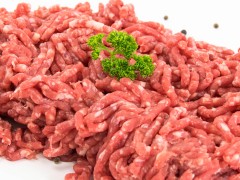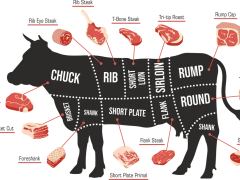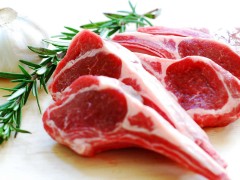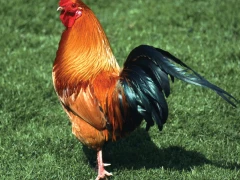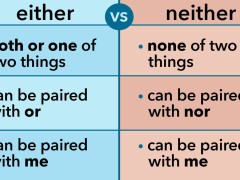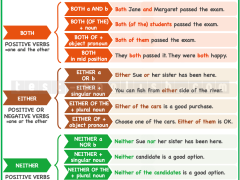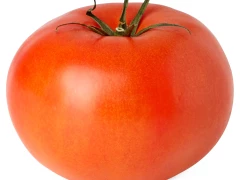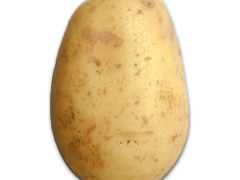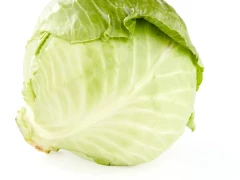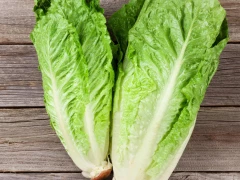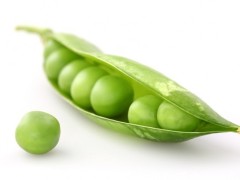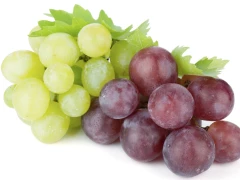butcher [ˈbutʃə] n. 卖肉者
meat [miːt] n. (食用)肉
* * *
A: Which do you prefer, meat or fish?
B: I'd rather have fish.
A:您喜欢吃鱼还是吃肉?
B:我比较喜欢吃鱼。
* * *
beef [biːf] n. 牛肉
【派】beefy 强壮的
【扩】steak 牛排 bull 公牛
* * *
A: What is special soup today?
B: It is beef and vegetable soup today.
A:今天是什么特色汤?
B:今天是牛肉蔬菜汤。
* * *
lamb [læm] n. 羔羊肉
【扩】sheep 羊
* * *
A: We will have roast lamb for dinner.
B: Are there any vegetables to go with it?
A:我们晚餐吃烤羊肉。
B:有配餐的蔬菜吗?
* * *
husband [ˈhʌzbənd] n. 丈夫
* * *
A: I still need to shop for my husband.
B: What does your husband like to do in the daily life?
A:我还要给我丈夫买东西。
B:你丈夫平时都喜欢干点儿什么?
* * *
steak [steik] n. 牛排
【派】beefsteak 牛排
* * *
A: We've got beef steak with onions today.
B: But I want to try your lobster.
A:今天我们有洋葱牛排。
B:但我想尝尝你们的龙虾。
* * *
mince [mins] n. 肉馅
chicken [ˈtʃikən] n. 鸡
【扩】hen 母鸡 chick 小鸡 cock 公鸡
* * *
A: I want curry chicken to my room, please.
B: May I have your room number?
A:我想请你们送咖喱鸡到我房间来。
B:能告诉我您的房间号吗?
* * *
tell [tel] v. 告诉
【派】teller 出纳员
【扩】inform 告诉
【搭】tell sb. sth. 告诉某人某事
* * *
A: Can anyone tell me where I can buy the ingredients to make Chinese food?
B: There is a supermarket in Sunshine Street. You can buy some there.
A:谁能告诉我哪里可以买到做中国菜的原材料?
B:阳光大街上有家超市,你可以在那儿买到。
* * *
truth [truːθ] n. 实情
【派】truthful 诚实的 truthless 不忠实的
【搭】in truth 事实上
* * *
A: Would you mind if I tell him the truth?
B: It depends on you.
A:我可以告诉他实情吗?
B:这就看你自己了。
* * *
either [ˈaiðə] adv. 也(用于否定句)
【扩】also 也
【搭】either...or...或……或……
* * *
A: I get the impression that you don't like bean curd much.
B: Well, I don't dislike it, but I don't like it either.
A:我有点儿印象你不很喜欢豆腐。
B:嗯,我不讨厌,但是我也不喜欢。
Lesson 50 He likes... 他喜欢……But he doesn't like... 但是他不喜欢…
tomato [təˈmɑːtəu] n. 西红柿
* * *
A: This is your scrambled egg.
B: I'm afraid there is a mistake. We ordered a scrambled egg with tomato.
A:这是你们的炒蛋。
B:恐怕您弄错了。我们点的是番茄炒蛋。
* * *
potato [pəˈteitəu] n. 土豆
【扩】sweet potato 红薯
【搭】a couch potato 电视迷
a hot potato 棘手的问题
a small potato 小人物
* * *
A: I'd like some smashed potatoes and green beans.
B: Sorry, we have no green peas left today.
A:我想来点儿土豆泥和青豆。
B:对不起,我们今天没有青豆了。
* * *
cabbage [ˈkæbidʒ] n. 卷心菜
lettuce [ˈletis] n. 莴苣
* * *
A: The lettuce is too salty to eat.
B: Sorry, would you like us to offer you something instead?
A:这个莴苣太咸了,没法吃。
B:对不起,您要不要我们给您提供别的菜来代替?
* * *
pea [piː] n. 豌豆
【派】peanut 花生 peacock 孔雀
* * *
A: Which vegetables come with your steak?
B: French fries, carrots and peas.
A:你们的牛排配有什么蔬菜?
B:有薯条、胡萝卜和豌豆。
* * *
bean [biːn] n. 豆角
pear [pɛə] n. 梨
grape [ɡreip] n. 葡萄
【派】grapefruit 葡萄柚
* * *
A: The grapes look good.
B: They taste good, too.
A:这些葡萄看起来很棒。
B:它们吃起来也很美味。
* * *
peach [piːtʃ] n. 桃
【搭】juicy peach 水蜜桃
honey peach 水蜜桃
* * *
A: My mother used to make peach preserves for me.
B: It must be very delicious.
A:我妈妈过去常常自制桃子果酱给我吃。
B:那肯定很美味。
noun [专属名词]屠夫;肉店;刽子手;笨蛋,莽夫;(火车或剧院的)小贩 - He worked in a butcher's.
verb [vi. 不及物动词]屠宰;弄砸;残杀,杀戮 - Pigs were butchered, hams were hung to dry from the ceiling.
- I bought some meat at the butcher's.(我在肉店买了些肉。)
- at the doctor’s 在诊所
- at the hairdresser’s 在理发店
- at the baker’s 在面包店……
noun [物质名词]肉类,(某种)食用肉;重要的部分,有趣的部分;<美>棒球球棒等物体最粗的部分;<古>食物(meat and drink 饮食);果肉,坚果仁,(蛋的)可食用部分 - Meat and fish are relatively expensive.
verb [vi. 不及物动词](用机器)切碎,绞碎;装腔作势地小步快走;矫揉做作地说 - The history of the mince pie may have contributed to its unusual reputation.
noun [物质名词]牛肉;肌肉,力量,力气;<非正式>抱怨,牢骚;<非正式>要点,关键;<美,非正式>犯罪指控,罪名 - The nation also exports beef.
verb [vi. 不及物动词]<非正式>抱怨,发牢骚 - Pete gobbled all the beef stew.
noun [物质名词]肉排,(尤指)牛排;鱼排,鱼块;(常指切成块出售、供炖焖用的)牛肉 - What's the best way to cook steak?
noun [物质名词]羔羊,小羊;羊羔肉;<非正式>宝贝,乖乖 - Laura was basting the leg of lamb.
verb [vi. 不及物动词]产羊羔;照看(产羔母羊);<非正式> 怂恿(某人)大笔花钱(尤指花钱纵酒) - The lamb gave a faint bleat.
noun [专属名词]羊肉 - Hotpot is made from mutton and onion.
She made a hearty mutton stew.(她做了一锅丰盛的羊肉炖菜。)
- instant-boiled mutton(涮羊肉)
- mutton hotpot(羊肉火锅)
noun [专属名词]丈夫 - Eva married her husband Jack in 1957. 1957
noun [专属名词]鸡;鸡肉;<非正式>胆小鬼,懦夫;(儿童玩的)比试胆量的游戏 - Chicken is the flesh of this bird eaten as food.
adjective [原级]没勇气的,胆小的 - Chicken is also an adjective.
verb [vi. 不及物动词]<非正式>因害怕而放弃,胆怯(chicken out) - If someone calls you a chicken, they mean that you are afraid to do something.
verb [双宾语动词]告诉,告知;说,讲述;吐露,显示;看出,确切地判断;辨别,区别;命令,吩咐;告诉自己,暗自叮嘱;表明,说明;(不快的或令人疲倦的经历)产生效果,产生影响;泄密;数,计算;(通常指小孩)告状;警告,告诫;(某种因素)影响,起作用 - If you tell something such as a joke, a story, or your personal experiences, you communicate it to other people using speech.
noun [抽象名词](尤作纸牌用语)(泄露试图作弊的)不经意动作;(中东)台形(土墩)遗址(由远古人村落遗迹堆积而成的) - You use I'll tell you what or I tell you what to introduce a suggestion or a new topic of conversation.
noun [专属名词]事实,真相;真实性;真理,原理;的确,事实上 - Slowly the awful truth dawned.
conjunction [并列连词]或者,要么;两者都(不),既(不) - You use either in a negative statement in front of the first of two alternatives to indicate that the negative statement refers to both the alternatives.
pronoun [指示代词](两者之中)任意一个;两者都(不) - You use either in a negative statement to refer to each of two things, people, or situations to indicate that the negative statement includes both of them.
adverb [方式副词]也(不),亦(不);而且,还 - Don't agree, but don't argue either.
adjective [原级](两者中的)每个的,各方的 - ...a special Indian drug police that would have the authority to pursue suspects into either country. …
pronoun [指示代词](两者中)无一个 - She seemed neither surprised nor worried.
conjunction [并列连词]既不…(也不…);也不(用于否定句后,表示前句适用于所有提到的人或物);也不(用于否定句后,强调要引出另一否定句) - Professor Hisamatsu spoke neither English nor German.
adverb [方式副词](否定的陈述同样适用于其他人或物)也不;(否定的陈述适用于两方面)既不…也不… - They both smiled; neither seemed likely to be aware of my absence for long.
adjective [原级]两者都不的 - They both smiled; neither seemed likely to be aware of my absence for long.
noun [专属名词]番茄,西红柿;番茄红,鲜红色;番茄植株;番茄,西红柿 - Norman cut open his pie and squirted tomato sauce into it.
noun [专属名词]马铃薯,土豆,洋芋;马铃薯植株;<英,非正式>(尤指脚后跟部的)袜子破洞 - On the menu is wiener schnitzel and potato salad.
noun [专属名词]卷心菜,洋白菜;(作蔬菜食用的)卷心菜叶子,洋白菜叶子;<英,非正式>(冒犯)(因受伤或疾病而)身心残损的人;<英,非正式>生活极乏味的人 - "It's corned beef and cabbage," said Malone. "Yuck," said Maureen.
noun [专属名词][园艺] 生菜;莴苣;(美)纸币 - The salad consisted of a few leaves of sad-looking lettuce.
noun [专属名词]豌豆(粒);豆角;<西印度>豆荚 - The first pea fell onto the ground after a long flight and was eaten by a hen.
noun [专属名词]豆,菜豆,豆科植物;籽实,豆形种子;用于强调丝毫,一点;<旧>脑袋;(Bean)描述Java的软件组件模型(Enterprise Java Bean) - Sometimes I take 'em off with a bean.
verb [vi. 不及物动词](用某物)击中(某人)头部 - This is my favourite bean, and they are long bean.
noun [专属名词]梨,梨树 - She bit into a ripe juicy pear.
noun [专属名词]葡萄;葡萄酒(the grape);霰弹,葡萄弹(grapeshot 的简称);葡萄树;葡萄色 - These accusations have been going on for some time now, but it is just sour grapes.
noun [专属名词]桃子;桃树;桃红色;<非正式>极好的人(或物) - A peach is a soft, round, slightly furry fruit with sweet yellow flesh and pinky-orange skin. Peaches grow in warm countries.
adjective [原级]桃红色的;用桃子制成的 - The walls were painted white with a hint of peach.
verb [vt. 及物动词]告密,告发 - . I've got a variety of flavors for you to choose from. I've got strawberry, peach, chocolate, coffee, vanilla and praline.


